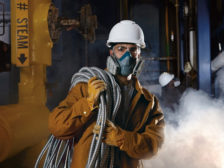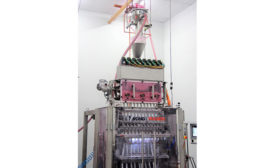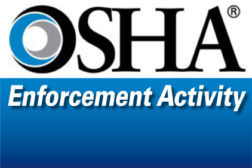Home » Keywords: » respiratory hazards
Items Tagged with 'respiratory hazards'
ARTICLES
Cut-resistant sleeves evaluated for respiratory hazards
Shedding fibers a cause for concern
February 1, 2017
Five workers injured in blast at ammunition company
Process Safety Management standards violated at facility
November 15, 2013
Get our new eMagazine delivered to your inbox every month.
Stay in the know on the latest safety trends.
SUBSCRIBE TODAYCopyright ©2024. All Rights Reserved BNP Media.
Design, CMS, Hosting & Web Development :: ePublishing










